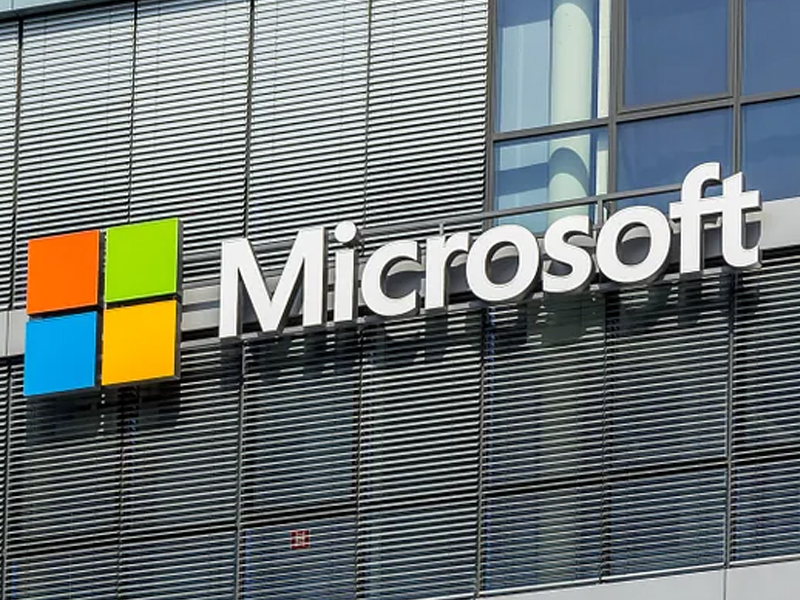Countdown to Windows 12: Will 2024 Be the Year?

Tech news
Unveiling the Mystery: Release Date Speculation
While an official announcement is absent, breadcrumbs scattered across the tech landscape offer intriguing hints.The Legacy Tick-Tock:
Historically, Microsoft follows a roughly three-year cadence between major Windows releases. Windows 11 launched in October 2021, making 2024 a plausible candidate for Windows 12’s arrival.Hardware Hints:
Recent murmurings suggest Microsoft might align Windows 12’s release with the rollout of next-generation Intel and AMD processors, potentially slated for late 2024.Software Whispers:
Code leaks and developer murmurs allude to features under development that wouldn’t fit within the current Windows 11 update cycle, further fueling speculation of a larger OS overhaul.A Glimpse into the Future: Potential Features
Though shrouded in secrecy, whispers of potential Windows 12 features pique our curiosity:AI-Powered Interface:
Imagine a Cortana 2.0, seamlessly anticipating your needs and personalizing your computing experience. Think proactive reminders, automated workflows, and even AI-driven app recommendations.Seamless Cloud Integration:
A deeper integration with Microsoft Azure could blur the lines between local and cloud storage, offering instant access to files and applications from any device.Gaming:
Rumors hint at optimizations for next-generation graphics cards and virtual reality, potentially transforming Windows 12 into a gamer’s paradise.Will Your PC Make the Cut? System Requirement Rumors
With each new iteration, Windows raises the bar for hardware. Whispers suggest Windows 12 might embrace stricter system requirements, potentially including:Mandatory TPM 2.0:
This security chip, already required for Windows 11 Pro and Workstation editions, might become mandatory for all Windows 12 installations.Beefier Processor Demands:
Support for the latest Intel and AMD processors could leave older machines behind.Memory Matters:
Rumors suggest a minimum of 8GB RAM might become the new standard, with 16GB or more recommended for optimal performance.Upgrade or Wait? Making the Wise Choice
The Windows 12 hype train is rolling, but before you jump on board, consider these factors:Official Announcement:
Wait for Microsoft’s official reveal to get a clear picture of features, system requirements, and release date.Hardware Compatibility:
Assess your current PC’s specs. Will it meet the rumored Windows 12 requirements, or is an upgrade looming?Personal Needs:
Analyze your computing habits. Do the rumored features align with your workflow and needs, or are you content with Windows 11?The Final Word: Embracing the Excitement
While the Windows 12 mystery remains unsolved, the anticipation is palpable. 2024 holds immense potential for a groundbreaking new operating system, but remember, a healthy dose of skepticism is always wise. Stay tuned for official announcements, keep your hardware in mind, and prepare to be amazed (or perhaps surprised) by what Microsoft has in store. The countdown to Windows 12 is on, and whether it arrives this year or later, one thing is certain: the future of personal computing is looking bright. Note:All information presented here is based on speculation and rumors. Let’s wait for MIcrosoft’s official announcement for confirmed details about Windows 12.Frequently Asked Questions?

01
Mobile Technology
Android Fights Back Against Phone Snatchers with Theft Detection Lock
May 19, 2024

01
AR and VR
Exploring the Real-World Uses of Augmented Reality
May 18, 2024

01
Blockchain
The Industrial Metaverse: Revolutionizing Manufacturing and Beyond
May 17, 2024

01
AI & ML
Google Search Goes Visual: Search by Uploading a Video!
May 15, 2024
SUSBSCRIBE TO OUR NEWSLETTER
Join our subscribers list to get the latest news and special offers.
Android Fights Back Against Phone Snatchers with Theft Detection Lock
Exploring the Real-World Uses of Augmented Reality
The Industrial Metaverse: Revolutionizing Manufacturing and Beyond
Don’t Get Hacked: Update Your LiteSpeed Cache Plugin Immediately